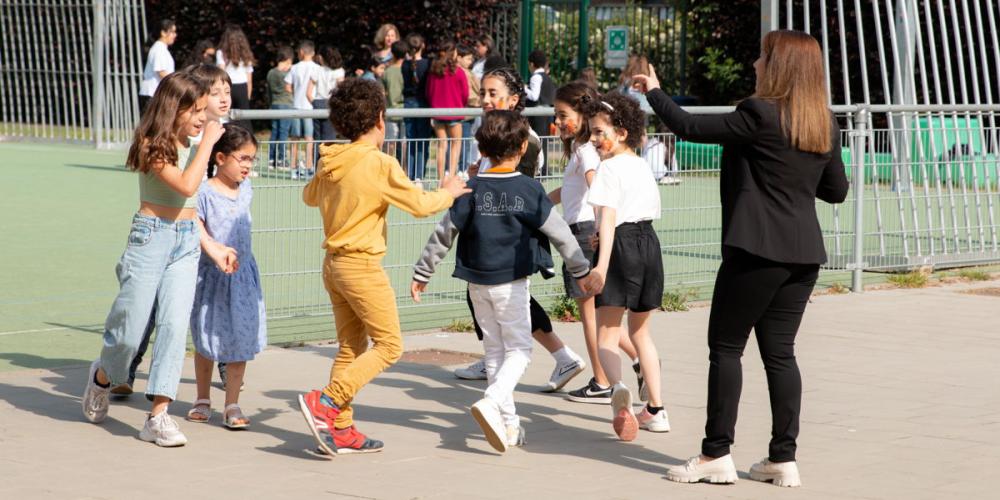
Last week, 350 children in Brussels and 100 in Flanders were presented with the VUB-ALEF certificate for completing Arabic language classes. The initiative was supported by a new curriculum using adapted teaching materials developed by the Vrije Universiteit Brussel (VUB). Since 2016, VUB and the GO! Scholengroep Brussel have been organising after-school Arabic language classes for children aged six to 15 via ALEF. The programme is open to children whose native language is Arabic, as well as those who want to learn.
Since the beginning of the school year, pupils have had weekly lessons on Wednesday afternoons, Saturdays or Sundays, at three locations: atheneum GO! for business in Sint-Jans-Molenbeek, GO! Atheneum in Anderlecht and GO! Atheneum E Hiel in Schaarbeek, where VUB and GO! Scholengroep Brussel organised a graduation ceremony.
On Sunday, students who attended the programme in Schaerbeek received their diplomas from Sven Gatz, the Brussels minister of Dutch-Language Education and Multilingualism, VUB rector Jan Danckaert, Raf Provost of GO! Scholengroep and school director Piet Van De Velde.
About the ALEF programme
“Since 2016, there has been space each year for 300 children in the GO! Scholengroep Brussel under our coordination,” says VUB project coordinator Sami Azar. “We have recently expanded our operation by working with various municipalities and non-profit organisations. So this year, 60 pupils in GBS windroos Molenbeek, 45 in GO! Scholengroep Gent, 30 in Mechelen and 20 in Oudenaarde have taken the classes. The end-of-year tests are arranged centrally and we award a certificate based on the results.”
The ALEF certificate is currently the only one in Europe that assesses Arabic language skills in children based on the Common European Framework of Reference for Languages (CEFR).
“The teachers have a background in education and are usually people who have been forced to flee their home country,” says Azar. “The programme gives them an opportunity to maintain and enhance their skills. At the same time, they are introduced to our labour market, while being supported by VUB experts in linguistics and second language acquisition.”
As well as the teaching package, each lesson includes additional activities such as role playing, group work, storytelling, music and theatre. Arabic, Dutch and French are spoken during these activities, which allow children to learn about each other’s cultural backgrounds and languages in an open and casual way. It also helps them develop the skills to interact in a respectful manner. At the same time, the programme underlines the importance of multilingualism, as a catalyst for communication, social contacts, creativity and cognitive processes.
“The ALEF programme allows VUB, as an urban engaged university, to help solve metropolitan challenges such as the refugee crisis, promoting diversity in Brussels and highlighting the importance of multilingualism,” says vice-rector for Internationalisation Karin Vanderkerken.